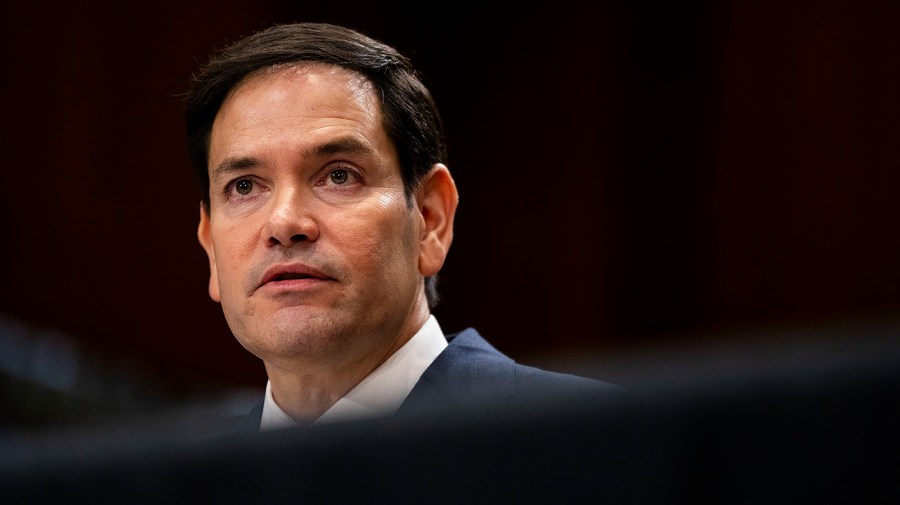
Watching Sen. Marco Rubio (R-Fla.) when I worked on the U.S. Senate Foreign Relations Committee, I saw a man vocally make the case for U.S. foreign assistance, linking its importance to national security and American ideals at John Kerry’s confirmation hearing for secretary of State in 2013. American aid was not just a world of change but a chance to change the world.
Seeing him now as secretary of State, it’s hard to imagine he is the same person, as the Trump administration’s attempts to shut down USAID and impose a blanket freeze on foreign aid with few exceptions.
What started as a pause and review of foreign aid has turned into a full-blown crisis that threatens to unravel the entire international development sector and affect millions of lives around the world. And having just appointed himself acting director of USAID, it is Secretary Rubio who bears the responsibility for what comes next, not unelected political appointees with an axe to grind.
Secretary Rubio therefore may want to take a page out of Senator Rubio’s book. Back on the Senate floor in 2017, Senator Rubio recognized the historical importance of how U.S. foreign assistance helped rebuild Western Europe and Japan following World War II:
“Did it help the people of Japan and people of Germany? Absolutely. Did it help the people of the United States? Without question,” he said, citing how America is better off with strong allies, stable democracies and trade partners thanks to U.S. foreign aid.
The senator pointed out that U.S. foreign aid helps strengthen the American economy and national security noting that “95 percent of the people on this planet who buy things live outside the United States … seven of the 10 fastest growing economies happen to be in the developing world.”
For American businesses engaged globally, he cautioned that “People can’t be consumers if they’re starving, if they’re dying of HIV/AIDS. They can’t be consumers if they’re dying of malaria, they can’t be consumers if they live in an unstable country.”
Secretary Rubio may have changed his tune but it’s still the case the United States helps people, communities and markets survive and thrive around the world, which in turn protects American interests. According to Senator Rubio, “We are helping people to emerge from poverty and ultimately become members of a global consumer class who buys American goods and services.”
The Trump administration’s claims that USAID today acts against American interests or is corrupt or ineffective — claims made without any empirical evidence — risks undermining the entirety of foreign aid, which is just a rounding error of the U.S. national budget.
Despite what most Americans think, in 2023, U.S. foreign aid represented 0.24 percent of its gross national income (GNI), placing the United States 26th on the list of donor countries, according to the size of its economy. This tiny amount — a fraction of a percent — punches far above its weight, with every dollar stretching to help the world’s poor and cementing America’s global humanitarian leadership.
It’s such a small amount that the average American spends roughly the same amount on Halloween decorations as their taxes do on foreign aid each year — about $100, according to aid group Oxfam where I worked.
Those “Halloween dollars” spent on U.S. foreign aid achieve a lot more than my kids’ costumes. US foreign aid has resulted in a 48 percent decline in malaria death rates since 2006, saving 11.7 million lives, providing 28 million children under five with nutrition helping more than 92 million women and children access essential and often life-saving care and saving more than 25 million lives from HIV/AIDS.
Despite its incredible achievements, foreign aid — like any investment — can always be spent better. There’s been bipartisan calls to shift power and resources away from the D.C. Beltway to communities on the front line who can invest dollars more smartly. The first Trump administration led the way on this “localization” agenda and the Biden administration followed suit.
There is more we can do to ensure we are providing people with a hand-up and not a handout. And we are ready for a serious discussion if the Trump administration wants to be serious about foreign aid.
But tearing apart the world’s largest aid agency overnight, pulling food, medicine and life-saving aid from the most vulnerable and laying off thousands of aid workers including Americans and those globally whose jobs support their entire communities is economically and historically short-sighted.
The senator I worked with years ago reminded Americans that “we are not a small, obscure nation … if there is a major crisis anywhere on this planet, it will eventually have a nexus to life in America.”
As Secretary Rubio presides over a foreign aid crisis of the Trump administration’s own making, he may want to remember his own words of wisdom from the Senate floor.
Fatema Z. Sumar is an adjunct lecturer at Harvard Kennedy School and executive director of the Harvard Center for International Development who served in senior roles across four Democratic and Republican administrations on foreign policy and international development.












